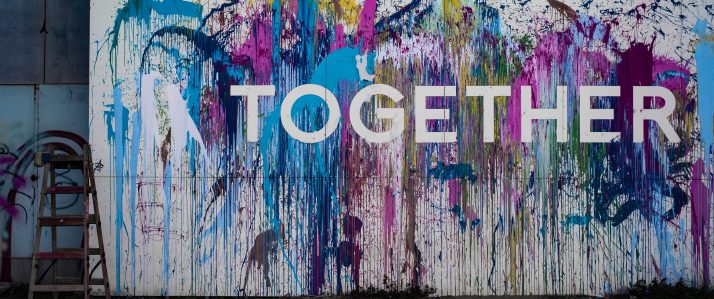MRG Foundation has decided to release $300,000—30% of our operating reserves—to start a Community Response Fund. The Fund will rapidly deploy resources to community-based organizations at the frontlines of the COVID-19 outbreak in Oregon.
We call on leaders in philanthropy, business, and government to join us by making bold gifts that match the urgency of this moment.
Learn more about and donate to the Community Response Fund
Dear friend of MRG,
Coronavirus is revealing to us the interconnectedness of our world. It is showing us that, as our Indigenous ancestors all over the world predicted, the health and wellbeing of one of us is intimately bound to the health and wellbeing of all of us. It is showing us that our current systems only work for a wealthy few and that the greedy opportunism at the heart of capitalism is truly harmful to everyone. This virus will continue to present us with innumerable challenges but it has also given us an opportunity to rise to the occasion, and it’s positing that another, better way is possible, one rooted in community wisdom, collaboration and mutual aid, and people over profits.
The triple threat of this crisis—the virus itself; the lost wages, missed meals, and lost housing during social distancing; and the economic downturn during and after the outbreak—will hit the communities we serve first and hardest.
Because of living legacies of oppression baked into our social, economic, and political systems, we know that the folks most affected by the crisis/outbreak are more likely to be Black, brown, Native, and folks who are a part of our Asian and Pacific Islander communities. They are more likely to be immigrants, refugees, or undocumented; to be women, trans, or gender non-conforming; to be poor; to be disabled.
Rooting our Response in Justice
We must root any response to this crisis in racial, economic, disability, and gender justice. Without decisive action, this crisis will only deepen existing inequities.
This moment is laying bare that many of the policies and practices that could have made people’s lives easier were possible all along. And it’s about more than ease: it’s about wellbeing and dignity. We have the power to treat people better at work, at home, at school, and in public.
Now is the time to seize this opportunity to transform policies and practices across all sectors, to create systemic changes that will benefit everyone.
The Opportunity for Philanthropy
It’s important to acknowledge that practices in traditional philanthropy—burdensome applications and reporting requirements, trustee-determined grant priorities, overly restrictive funding, mistrust of communities of color, and disbursing only the 5% asset minimum each year—have contributed to this crisis. Philanthropic institutions, who owe their very existence to the accumulation of wealth made possible by the exploitation of Black and brown folks, have long held back much-needed dollars that could have been invested in communities experiencing systemic inequities, dollars that could have changed the systems that create and exacerbate those inequities in the first place.
Those of us in philanthropy can turn these inequities around today. We can start by listening to grantees, trusting that they are the experts in their own communities, and letting them determine grant priorities. We can take direction from the leadership of frontline organizations. We can streamline our grantmaking processes without sacrificing rigor. We can provide more general operating support and other flexible funding that lets local groups do what they know needs to be done. And we can release more money. Now.
A Community Response fund to Match the Urgency of this Moment
This moment calls for bold action. We have a moral duty to do philanthropy differently—to be proactive and nimble, and to act with radical trust.
At MRG Foundation we are always asking ourselves: how can we be in service to the movement right now? And as always, we have decided to lead with love. To use our power and assets to immediately support our grassroots organizations when they need it most. We decided to release $300,000—30% of our operating reserves—to start a Community Response Fund.
The Community Response Fund will direct dollars to organizations that address systemic inequities and whose work focuses on both organizing most-impacted communities at this time, and anticipating the long-term effects of the outbreak.
The Fund is designed to respond to the need among grassroots social justice organizations to shift their work and address the long-term effects of the outbreak. The Fund is not meant to duplicate the work of public health officials or other rapid response funds.
We call on leaders in philanthropy, business, and government to join us by making bold gifts that match the urgency of this moment.
In Solidarity,

Se-ah-dom Edmo
MRG Executive Director





